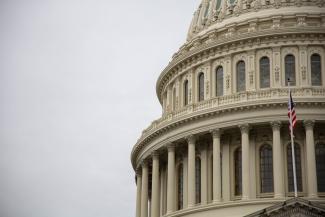
The 2020 RMD Quandary
The 2020 CARES Act
The CARES Act, which was signed into law on March 19, 2020, is a sweeping piece of federal legislation designed to stimulate the economy by providing significant financial relief to consumers and businesses that have been impacted by the COVID-19 global pandemic. By now, I am sure most readers of this newsletter are familiar with the historic relief bills primary provisions, which included $250 billion of direct payments to individuals and families, $260 billion of additional unemployment insurance benefits, and billions of dollars cash and loans to small businesses, distressed companies, municipalities, and hospitals.
The Act also ushered in a number of temporary IRS rule/deadline changes including extending the regular tax filing deadline from April 15 to July 15:
1. Extending the prior year contribution deadline for IRAs and Roth IRAs to July 15, 2020
2. Increasing the 401(k) loan maximum from 50% of the participant’s vested balance up to $50,000 to 100% up to $100,000
3. Allowing for penalty-free retirement account distributions of up to $100,000 for IRA and 401(k) and403(b) plan participants who are under normal retirement age and have suffered hardships as a result of the pandemic
4. And allowing up to 3 years to roll the distribution funds back into the taxpayers retirement account with having to pay tax on the distribution.
The CARES Act and RMDs
The Act also waived the required minimum distribution requirement for the 2020 tax year for all applicable retirement account types. This was an unexpected bit of good news for many taxpayers who did not need the distributions and would prefer to defer their RMD income into a future tax year. However, it presents a tax quandary for those taxpayers – including many FPH clients – who took their RMDs early in the year before the virus became a pandemic and before the waiver was announced. To address this, the IRS expanded the 60 day rollover rule to allow all RMDs processed between February 1st and April 1st 2020 (60 days) to be returned to the accounts from whence they came by July 15th in order to avoid taxation this year. However, this relaxation of the rollover rule did not extend to taxpayers who took their RMDs in January or to inherited IRA/qualified plan beneficiaries.
RMDs and Financial Planning Hawaii
At FPH, I have traditionally encouraged clients to take their RMDs early in the year to avoid year-end scrambling or even forgetting to take the distributions. This year our diligence and efficiency has come back to bite us. We are holding out hope that IRS will do the right/fair thing and ALL taxpayers who took RMDs before the waiver was announced to return their distributions to the originating accounts if they choose to do so. We will keep you posted.
Disclosure
The information contained in this report is intended for informational purposes only. This information is not intended as a solicitation or an offer to buy, sell or hold any security. Investments and strategies mentioned may not be suitable for all investors. Examples and illustrations included herein are hypothetical only, actual results will vary. Past performance is no guarantee of future results. As with all investments, various risks may exist and we recommend you consult with your financial advisor prior to making any investment decisions. Neither the author nor JW Cole/JW Cole Advisors provide legal or tax advice.
John H. Robinson is the co-founder of Nest Egg Guru and the owner of Financial Planning Hawaii. Research papers he has written or co-authored have appeared in numerous peer-reviewed academic journals. Papers he co-authored on retirement income sustainability won the 2008 CFP Board of Standards and the 2010 Institute for Retirement Education (InFRE) best paper awards, respectively.

